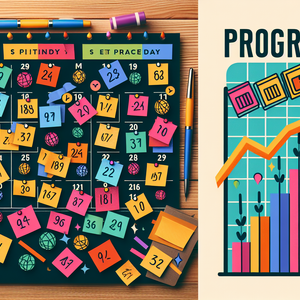The Future of Urban Living: Greentech's Role in San Diego's Sustainable Development

A fundamental aspect of San Diego's greentech movement is the emphasis on sustainable infrastructure. Leading firms like Gensler are pioneering designs that prioritize energy efficiency and resource conservation. For instance, the recent expansion of the San Diego International Airport showcases innovative features such as solar panels, rainwater harvesting systems, and advanced energy management systems that significantly reduce the facility's carbon footprint. Moreover, urban developments have seen the rise of green roofs and living walls, which serve to bolster urban biodiversity, mitigate the heat island effect, and enhance air quality. A prime example is the IQHQ Biotech Hub, a mixed-use development that integrates numerous green technologies, such as permeable pavements and native landscaping, promoting sustainability and resilience in the urban environment.
Green Building Practices: A Paradigm Shift in Construction
The construction industry is often criticized for its significant environmental impact, but greentech companies in San Diego are leading a transformative shift toward sustainable practices. Companies like Civita are at the forefront of this movement, utilizing sustainable building materials and energy-efficient designs. Their Civita Park development exemplifies the use of reclaimed materials and innovative energy solutions, fostering a sense of community while conserving natural resources. Moreover, the LEED (Leadership in Energy and Environmental Design) certification has become a benchmark for green building in the region. For example, the Salk Institute for Biological Studies, renowned for its groundbreaking research, has achieved LEED certification through its commitment to environmentally sustainable design and construction. Such projects not only serve as models for future developments but also inspire other municipalities to prioritize green building practices.
Smart City Technologies: Integrating Innovation for a Better Quality of Life
In tandem with sustainable infrastructure and building practices, San Diego is leveraging smart city technologies to enhance urban living. Companies such as CivicSmart are developing innovative solutions that optimize urban mobility. Their smart parking systems allow drivers to locate available parking spots in real-time, reducing congestion and emissions, while enhancing the overall driving experience. Additionally, the integration of Internet of Things (IoT) devices is making urban environments more efficient and responsive. The City of San Diego has implemented smart streetlights equipped with sensors to monitor traffic patterns and adjust lighting accordingly. This not only saves energy but also enhances safety for pedestrians and drivers alike.
Case Studies: Successful Transformations
To illustrate the positive effects of greentech in San Diego, we can examine two noteworthy case studies: 1. The San Diego Sustainability Coalition: This collaborative initiative unites various stakeholders, including businesses, government agencies, and community organizations, to drive sustainable projects. Their notable Sustainable Communities Program focuses on creating green spaces and improving public transportation, significantly enhancing residents' quality of life through increased accessibility and environmental stewardship. 2. The Downtown San Diego Partnership: This organization has played a pivotal role in revitalizing downtown San Diego into an eco-friendly urban hub. Initiatives like the Clean & Safe Program have enhanced public spaces, increased greenery, and promoted sustainability efforts, making downtown a vibrant and desirable place to live and work.
San Diego's commitment to greentech is not only shaping the future of urban living but also providing a blueprint for cities worldwide in their quest for sustainability. With a focus on sustainable infrastructure, innovative building practices, and smart city technologies, greentech companies are addressing environmental challenges while improving the quality of life for residents. As we look ahead, San Diego stands as a testament to the possibilities that arise when innovation melds with sustainability, paving the way for a greener, more resilient urban landscape. Embracing these changes is not just a necessity; it is an opportunity to create a thriving, sustainable future for generations to come.
Sustainable Infrastructure Engineer
Gensler, AECOM, Jacobs Engineering
Core Responsibilities
Design and implement sustainable infrastructure projects, focusing on energy efficiency and resource conservation.
Collaborate with multidisciplinary teams to integrate greentech solutions in urban developments.
Assess environmental impacts and ensure compliance with sustainability standards.
Required Skills
Proficiency in civil engineering software and green building certifications (e.g., LEED).
Strong understanding of sustainable materials and construction practices.
Excellent project management and communication skills.
Green Building Consultant
Civita, Green Building Initiative, local architecture firms
Core Responsibilities
Advise clients on sustainable design practices and energy-efficient building materials.
Conduct energy audits and building assessments to recommend improvements.
Prepare documentation for LEED certification and other sustainability standards.
Required Skills
In-depth knowledge of green building codes and regulations.
Strong analytical skills with experience in energy modeling software.
Effective communication skills for stakeholder engagement and education.
Smart City Solutions Developer
CivicSmart, Cisco, Siemens
Core Responsibilities
Develop and implement software solutions for smart city applications, such as traffic management and urban mobility.
Collaborate with city planners and engineers to integrate IoT devices into urban infrastructure.
Analyze data from smart sensors to improve city services and operational efficiency.
Required Skills
Expertise in programming languages (e.g., Python, Java) and data analytics.
Familiarity with IoT technology and urban planning principles.
Strong problem-solving skills and ability to work in a team-oriented environment.
Environmental Policy Analyst
San Diego Sustainability Coalition, government agencies, non-profits focused on sustainability
Core Responsibilities
Research and analyze policies related to urban sustainability and greentech initiatives.
Prepare reports and policy briefs to inform stakeholders about environmental impacts and regulatory changes.
Advocate for sustainable urban development practices at local government meetings.
Required Skills
Strong research and analytical skills with a focus on environmental science or public policy.
Excellent written and verbal communication skills for effective advocacy.
Understanding of local, state, and federal environmental regulations.
Urban Ecologist
Environmental consulting firms, local government agencies, research institutions like the Salk Institute
Core Responsibilities
Study urban ecosystems to assess biodiversity and environmental health in urban settings.
Develop strategies to enhance green spaces and promote urban biodiversity through greentech solutions.
Collaborate with city planners to integrate ecological principles into urban development projects.
Required Skills
Strong background in ecology, biology, or environmental science.
Experience with GIS mapping and ecological modeling tools.
Ability to communicate scientific findings to a non-technical audience.


